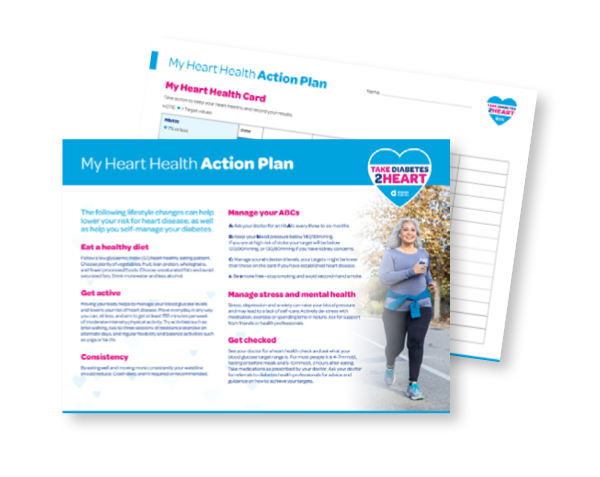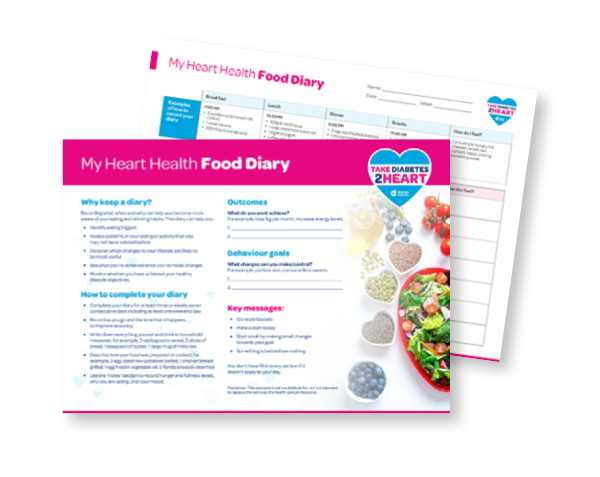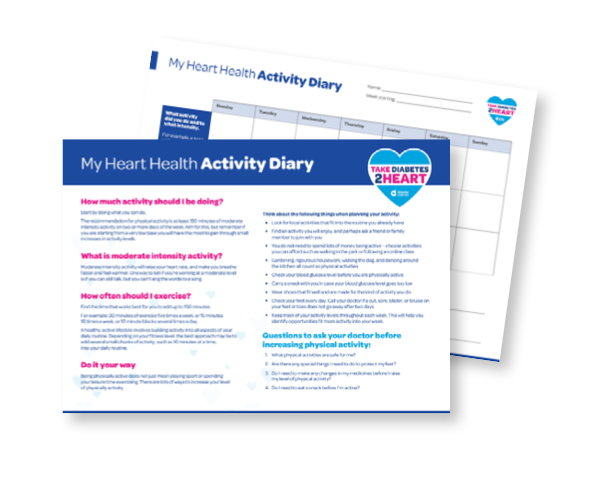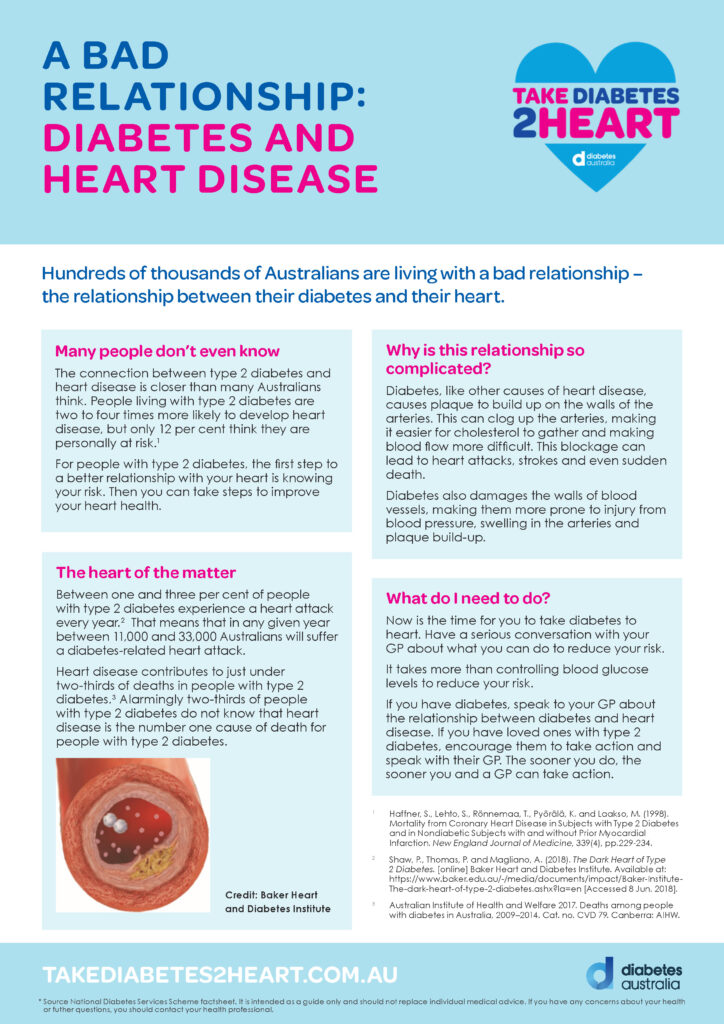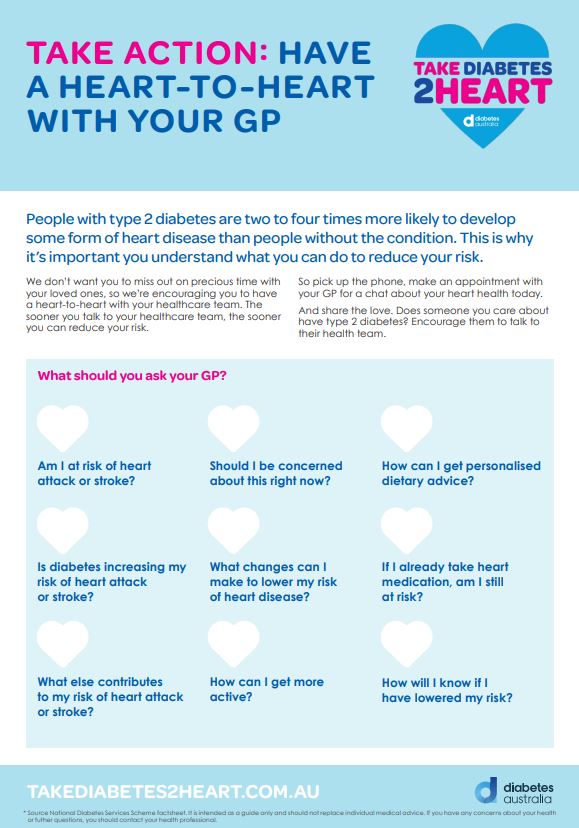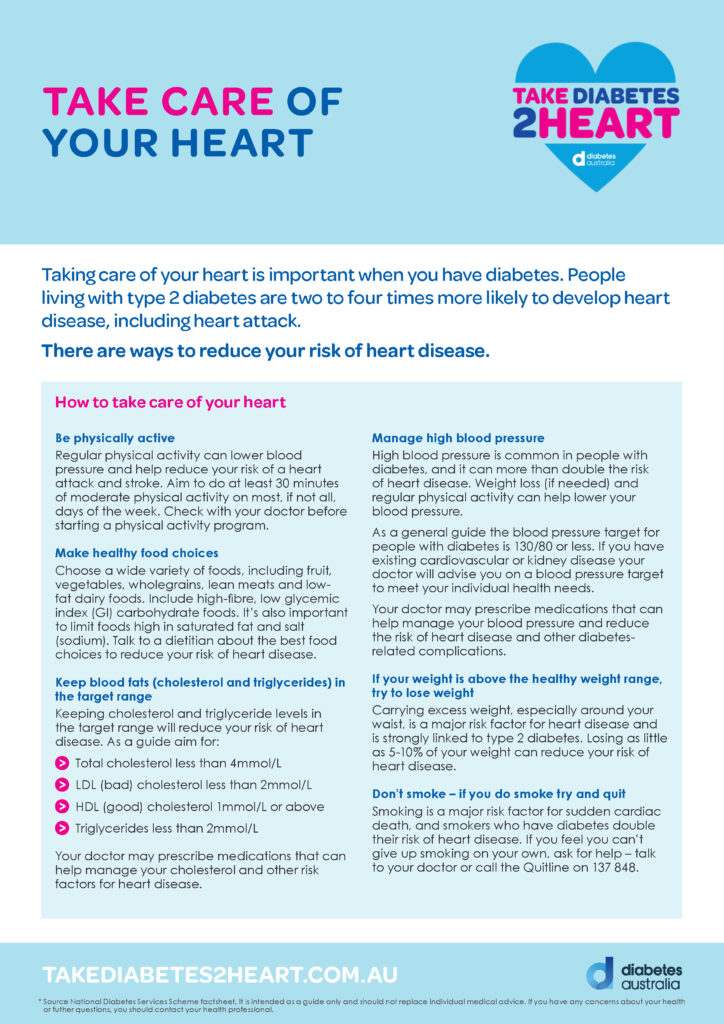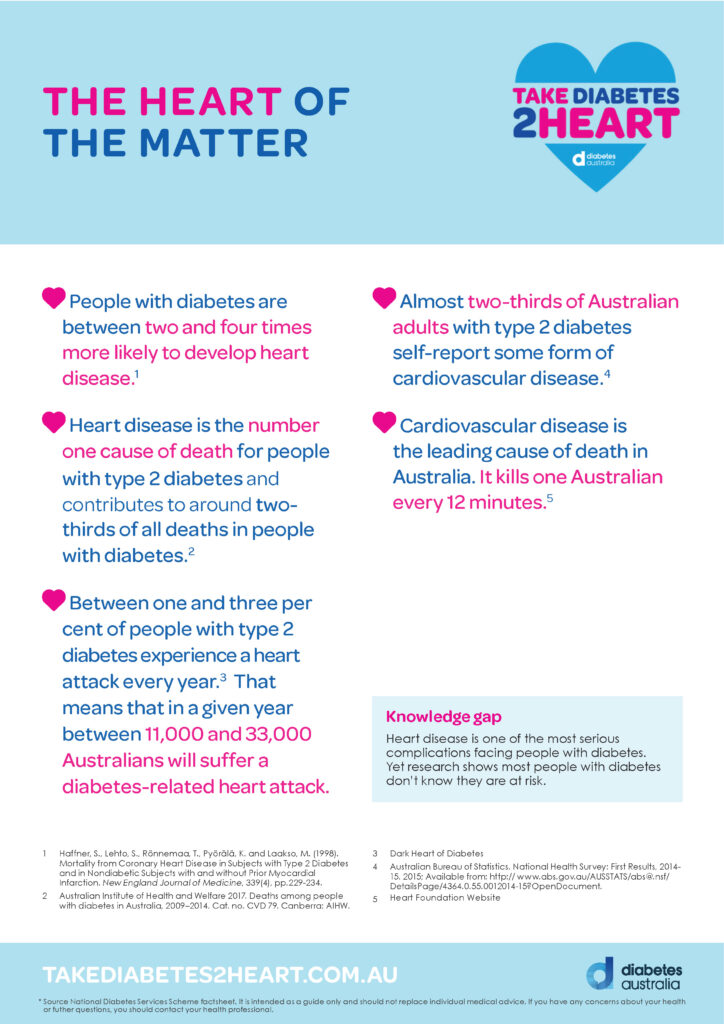How to have a heart-to-heart with your doctor
Talking about your health can be a scary experience, but your doctor is there to help you navigate any questions you may have, and any health issues you’re worried about.
To have a heart-to-heart with your general practitioner (GP) doctor, simply book an appointment to discuss your heart health, and ask them the following questions:
- Am I at risk of a heart attack or stroke?
- Is diabetes increasing my risk of a heart attack or stroke?
- What else contributes to my risk of heart attack or stroke?
- Should I be concerned about this right now?
- What changes can I make to lower my risk of heart disease?
- How can I get more active?
- How can I get personalised dietary advice?
- If I already take heart medication, am I still at risk?
- How will I know if I’ve lowered my risk?
To help you remember all of these questions, download the Have a Heart-to-Heart with your GP factsheet to take with you to your appointment.
How to take care of your heart
Taking care of your heart is important when you have diabetes. There are multiple ways to reduce your risk of heart disease:
- Be physically active: Regular physical activity can lower blood pressure and help reduce your risk of a heart attack and stroke. Aim to do at least 30 minutes of moderate physical activity on most, if not all, days of the week. Check with your doctor before starting any physical activity program.
- Make healthy food choices: Choose a wide variety of foods, including fruits, vegetables, wholegrains, lean meats and low-fat dairy foods. Include high-fibre, low glycemic index (GI) carbohydrate foods. It’s also important to limit foods high in saturated fat and sodium (salt). Talk to a dietitian about the best food choices to reduce your risk of heart disease.
- Keep blood fats (cholesterol and triglycerides) in the target range: Keeping cholesterol and triglycerides levels in the target range can reduce your risk of heart disease. As a guide, aim for:
- Total cholesterol less than 4mmol/L
- LDL (bad) cholesterol less than 2mmol/L
- HDL (good) cholesterol 1mmol/L or above
- Triglycerides less than 2mmol/L
Your doctor may prescribe medications that can help manage your cholesterol and other risk factors for heart disease.
- Manage high blood pressure: High blood pressure is common in people with diabetes, and it can more than double the risk of heart disease. Weight loss (if needed) and regular physical activity can help lower your blood pressure. As a general guide, the blood pressure target for people with diabetes is 130/80 or less. If you have existing cardiovascular or kidney disease, your doctor will advise you on a blood pressure target to meet your individual health needs. Your doctor may prescribe medications that can help manage your blood pressure and reduce the risk of heart disease and other diabetes-related complications.
- If your weight is above the healthy weight range, try to lose weight: Carrying excess weight, especially around your waist, is a major risk factor for heart disease and is strongly linked to type 2 diabetes. Losing weight through exercise and a healthy diet can significantly reduce your risk of heart disease.
- Don’t smoke – if you do smoke, try and quit: Smoking is a major risk factor for sudden cardiac death, and smokers who have diabetes double their risk of heart disease. If you feel you can’t give up smoking on your own, ask for help – talk to your doctor or call the Quitline on 13 78 48.
dID YOU KNOW?
People with type 2 diabetes are two to four times more likely to develop heart disease1, with between one and three per cent of people with type 2 diabetes experiencing a heart attack every year3. But it doesn’t have to be that way.
Diabetes, like other causes of heart disease, may cause plaque to build up on the walls of the arteries, which makes it easier for cholesterol to gather and limit blood flow. This blockage can lead to strokes, heart attacks and even sudden death. But with more exercise, a healthier diet and the support of your loved ones and healthcare team, you can limit your risk of heart disease and diabetes. If you’re ready to take action, see below on how you can take care of your heart.
HOW TO have A HEART-2-HEART WITH
YOUR LOVED ONES
Along with speaking with your GP, speaking to your loved ones can help make the journey to reducing the risk of heart disease easier. If you or one of your loved ones is living with type 2 diabetes, have a heart-to-heart using the below tips to start the conversation.
- Be direct. Heart disease is a tough issue to discuss, but it’s tougher to say goodbye to a loved one.
- Be open. Discuss your fears, worries and needs. Remember that you both want the other to be around for a long time, so it’s best to say what’s on your mind.
- Encourage them to talk to health professionals to understand risks and what they can do to help reduce them.
- Share the good news. The sooner you both know about the increased risk, the sooner you both can take steps to reduce that risk.
- Do it together. From being there during medical appointments to exercising and eating similar meals, tackling heart disease together can make the journey easier.
If you feel uncomfortable about having the discussion, encourage your loved ones to visit the Take Diabetes 2 Heart website, or download the fact sheet to help start the conversation.



